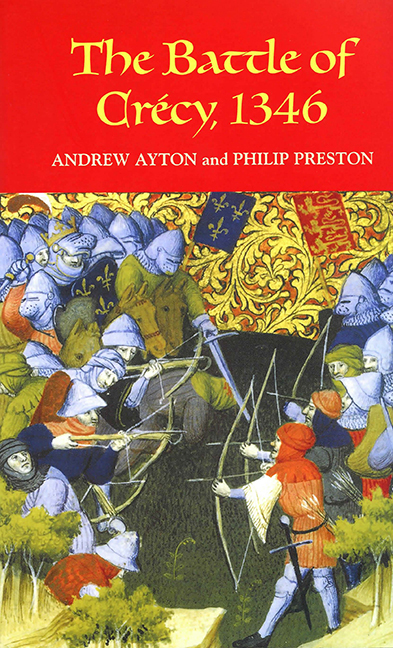4 - The Battle of Crécy
from The Battle
Published online by Cambridge University Press: 25 October 2017
Summary
It is impossible to reconstruct the past. The historian can, at best, do no more than present a crude outline, a sketch in which many of the details are missing. Medieval battles present particular problems. Even contemporaries would have found it impossible to gain a full picture of events that were inevitably confused and confusing. Individual participants will have had vivid stories to tell about their part in a conflict, but will not have been in a good position to know what happened overall. Communications on the battlefield were difficult, and commanders must have found it impossible to know what was happening in all sectors. To make matters worse, the chroniclers who wrote about the events were rarely present, and were unlikely to have military experience. Accounts may not only be inconsistent in different sources, but even within the same source. The generally reliable Life of Edward II, for example, contains two divergent accounts of the death of the earl of Gloucester at Bannockburn, which the author did not even attempt to reconcile. A further problem is that medieval audiences did not want to know the same things as modern historians. Questions of strategy and tactics had little fascination for them. This helps to explain why newsletters written by those on campaign leave so much unanswered. Frequently, the problem facing medieval historians is that of a lack of evidence, but an over-abundance of potentially contradictory sources can create even more difficulties. The battle of Crécy was one of the most notable events of the fourteenth century. Its astonishing outcome reverberated around Europe, and accordingly many chroniclers described it, in England, France, Italy and elsewhere. Not surprisingly, the stories they tell are far from consistent one with another.
The chroniclers tried their best to describe the English triumph at Crécy. Jean le Bel, a Hainaulter whose work provided a basis for Jean Froissart's later narrative, obtained accounts from both sides. He recorded what he was told in person by the count of Hainault, and ten or twelve knights who had accompanied him, whose horses had been killed under them in the battle. He also put down what he was told by various English and German knights.
- Type
- Chapter
- Information
- The Battle of Crécy, 1346 , pp. 139 - 158Publisher: Boydell & BrewerPrint publication year: 2005



